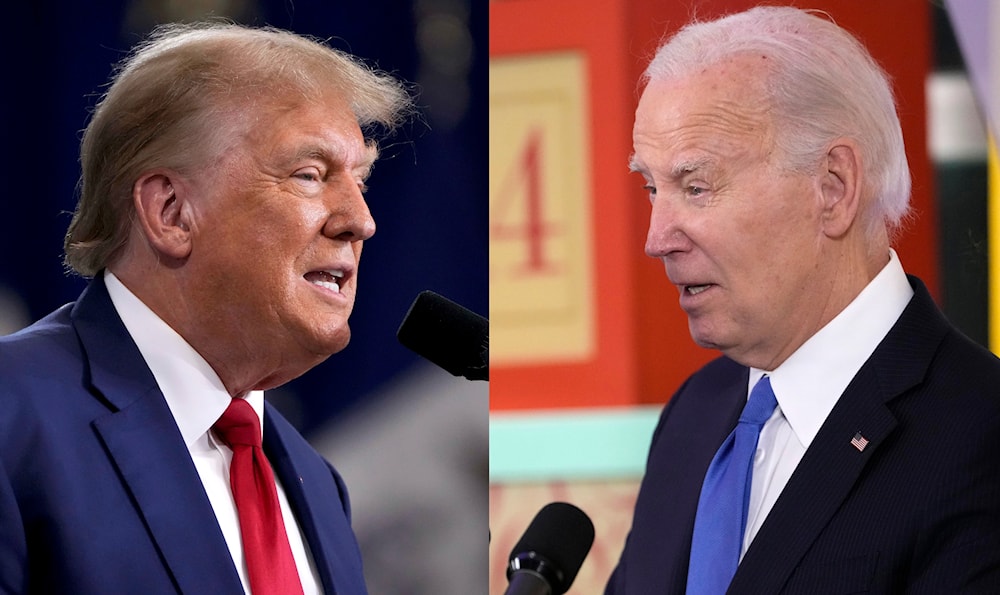Trump-Biden duel leaves majority of voters 'not at all enthusiastic'
In a new poll, the vast majority of voters are uneager about a new rivalry between Donald Trump and Joe Biden in the 2024 election.
-

This combination photo shows former President Donald Trump, left, during a rally on Nov. 18, 2023, in Fort Dodge, Iowa, and President Joe Biden during a reception in the White House in Washington, Dec. 11, 2023. (AP)
The results of a poll conducted by Decision Desk HQ/NewsNation from January 16-18 with 1,000 registered voters showed that around 59 percent of registered voters are “not too enthusiastic” or “not at all enthusiastic” about a rematch between Donald Trump and Joe Biden. The other 41 percent stated that they are “very enthusiastic” or “somewhat enthusiastic” about the rematch, according to The Hill.
According to election returns from Decision Desk HQ/The Hill, Trump won the Iowa caucuses last week, earning about 30 percent more of the vote than the next candidate, Ron DeSantis, in the Hawkeye State.
“I don’t think Iowa means anything. The president got 50-some-thousand votes, the lowest number of votes anybody who’s won got. You know, this idea that he’s going to run away — he can think anyway he wants, let him make that judgment,” Biden commented.
Today, the battle for the GOP presidential nomination heads to New Hampshire where Trump is also in the lead by 11.7 points over Nikki Haley, according to a polling average from Decision Desk HQ/The Hill.
When voters were asked about who they think is going to win in this year's match between Trump and Biden, about 43 percent said Trump would win, while around 33 percent believed it's going to be Biden. In addition, around 7 percent voted that “someone else” would win, and the remaining 17 percent said they were “not sure” about who would win.
Read more: Former MI6 chief: Trump reelection problematic for NATO
All eyes on debt
This comes as the United States' national debt keeps ballooning and its economy crumbling with forecasts of a recession not over just yet.
During the COVID-19 pandemic, the US national debt saw a major spike but was not controlled until it recently skyrocketed to over $34 trillion, hitting a historic high.
This poses a problem that will spill over to other big economies relying on public borrowing to regulate inflation. Moreover, it leaves public services provided by the US government, such as Medicare and Social Security, in an unknown grey area as the government could be faced with choices to prioritize certain services over others.
The issue could also peak with the consideration of the debt ceiling plan proposed by US President Joe Biden. It essentially raises the debt ceiling till January 25 to avoid a complete breakdown of the economy, but there are no financial guarantees in a very dynamic economy.
It is worth noting that the US national debt soared from an inflation-adjusted $403 billion to $34 trillion in just a century.
Currently, the US debt-to-GDP ratio stands at 123%, according to the International Monetary Fund. It surged over China's debt-to-GDP ratio, which recently leveled at over 80%. Japan, on the other hand, scored the highest among big economies and currently stands at 255%.

 3 Min Read
3 Min Read








